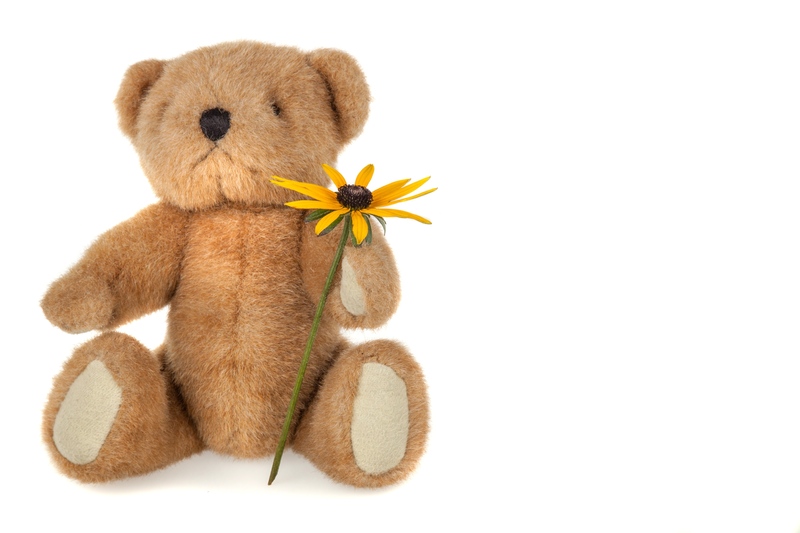Discover New Ways to Enhance Your Recycling Practice
Are you looking to make a real difference in your recycling routine? With environmental concerns rising and individuals seeking more effective ways to reduce waste, it's time to rethink and upgrade your recycling practice. In this comprehensive guide, we'll explore innovative strategies, practical tips, and updated methods for maximizing your recycling efforts at home, in the workplace, and beyond. Read on to discover fresh approaches and actionable advice that will help you build a more sustainable lifestyle.

Why Improving Your Recycling Habits Matters
Most of us are familiar with the basics: separate paper, plastic, and glass; rinse containers; avoid contamination. But today, enhanced recycling practices are essential for several reasons:
- Reduces landfill waste and the pressure on natural resources.
- Decreases pollution caused by improperly disposed materials.
- Contributes to a circular economy where items are continuously reused and repurposed.
- Can save money for individuals and communities alike through better waste management.
- Helps meet global sustainability goals and environmental regulations.
With so many benefits, enhancing your recycling practice isn't just a smart choice -- it's a necessary one for our planet's future.
Explore Cutting-Edge Ways to Enhance Your Recycling Routine
Adopt The Latest Recycling Technologies
Technological advancements are making recycling smarter and more efficient than ever. Here's how you can leverage these innovations:
- Smart Bins: These bins use sensors and artificial intelligence to sort recyclables and signal when they're full.
- Recycling Apps: Apps like iRecycle and Recycle Coach help you understand what and how to recycle locally, track your habits, and locate drop-off centers.
- Automated Curbside Sorting: Some communities offer bins that automatically sort recyclables and notify waste management when to collect.
- Reverse Vending Machines: Drop your bottles/cans in these machines, and you could even get cashback or rewards.
Tip: If your local area hasn't caught up yet, suggest these technologies to your municipality or community group and become an eco-leader in your neighborhood.
Go Beyond the Blue Bin: Recycle More Than Ever
Many people don't realize how much more can be recycled today. Expand your practice by including:
- Textiles: Old clothes, towels, and linens can often be recycled at drop-off centers or through retailer take-back programs.
- Electronics: E-waste programs accept items like phones, laptops, and chargers, preventing toxic components from ending up in landfills.
- Batteries and Bulbs: Proper recycling prevents hazardous substances from polluting soil and water.
- Plastic Bags and Film: Many grocery stores collect these soft plastics for specialized recycling.
- Household Hazardous Waste: Items like paints, chemicals, and old medications should be brought to specialized facilities.
Explore local programs to ensure you're diverting as much from landfill as possible!
Innovative Ideas to Reinvent Your Recycling Practice
Practice Precycling: Prevent Waste Before It Starts
Enhancing your recycling strategy isn't just about what you throw away; it's also about making choices that prevent unnecessary waste:
- Choose Products with Minimal Packaging: Pick items in bulk or those with recyclable containers to minimize packaging waste.
- Opt for Reusables: Use refillable bottles, cloth bags, and reusable containers instead of single-use plastics.
- Buy Secondhand: Purchasing pre-owned goods extends product life and reduces demand for new items.
- Say No to Unnecessary Extras: Refuse disposable cutlery, straws, or promotional materials you don't need.
Precycling helps you reduce your environmental impact before recycling even enters the equation.
Get Creative with Upcycling
Upcycling -- giving old items new life -- has exploded in popularity. This creative spin not only reduces waste, but also adds unique value to your home and lifestyle.
- Transform Glass Jars into storage containers, planters, or lanterns.
- Turn Old T-Shirts into tote bags, cleaning rags, or braided rugs.
- Upcycle Furniture with a fresh coat of paint or repurpose into a different function.
- Use Cardboard Boxes for children's crafts, pet toys, or organizers.
Tip: Share your upcycled creations online and inspire others to adopt these sustainable methods!
Host or Join Community Swap Events
Enhance your recycling effort by participating in local swap meets or community exchanges. These events promote the exchange of clothes, books, toys, electronics, and more -- keeping goods in circulation and reducing overall waste.
- Organize a neighborhood swap day for unwanted items.
- Create or join a social media group for giving away or trading gently used goods.
Reduce Contamination and Recycle Smarter
Educate Yourself on Local Guidelines
Rules can vary widely between cities or even neighborhoods. Here are steps to avoid "wishcycling" (putting non-recyclables in the bin):
- Check municipal websites or recycling apps regularly for updates on accepted items.
- Print out or save a digital list of what can and can't go in your bin.
- Pay attention to numbers on plastics: Not all plastics are universally recyclable.
Remember: It's better to landfill one non-recyclable than contaminate an entire batch of recyclables.
Clean and Prepare Recyclables Properly
Dirty or improperly prepared items can cause entire loads of recycling to be sent to landfill. To enhance your recycling output:
- Rinse out bottles, cans, and food containers.
- Remove lids, caps, and labels if your local facility requests it.
- Flatten cardboard boxes to save space and maximize collection efficiency.
Thorough preparation makes a difference!
Avoid Common Recycling Mistakes
Even seasoned recyclers can slip up. Here are some frequent pitfalls to watch out for:
- "Wishcycling" non-recyclable items, like greasy pizza boxes, plastic utensils, or items with mixed materials.
- Bagging recyclables in plastic bags: Most centers require loose materials for efficient sorting.
- Ignoring specialty recyclables: Batteries, light bulbs, and electronics need special handling.
Take Your Recycling Practice Beyond Home
Enhance Office and School Recycling Programs
Workplaces and schools are prime locations for making a recycling impact. Here's how to lead the way:
- Place clearly labeled bins in strategic locations such as break rooms, cafeterias, and common areas.
- Organize educational sessions or workshops to inform colleagues or students on proper recycling habits.
- Encourage management to audit waste streams and adopt greener procurement policies.
- Create fun challenges or competitions to reward good recycling behavior.
Good recycling practices in shared spaces set an example and magnify your environmental impact.
Support Local and National Recycling Initiatives
Enhancing your recycling practice is easier when supported by effective policies. You can:
- Participate in local clean-up events and recycling drives.
- Volunteer with environmental organizations to educate your community or assist at events.
- Advocate for policy changes like extended producer responsibility, deposit return systems, or bans on single-use plastics.

Advanced Strategies for Mastering Your Recycling Practice
Perform a Personal Waste Audit
Understanding what you throw away is crucial to enhancing your recycling efforts. Here's how to conduct a simple audit:
- Collect your trash and recycling for a week. Categorize and weigh each type of waste.
- Analyze the items most frequently discarded.
- Set specific goals--such as reducing plastic packaging or increasing compostable materials.
- Monitor your progress monthly to refine your habits.
Self-knowledge is the first step to improvement and a more responsible recycling lifestyle!
Explore Composting and Organic Recycling
Not all "waste" should be recycled; some is better composted. Composting kitchen scraps and yard waste transforms them into useful soil. Enhance your overall waste management by:
- Starting a compost pile or bin at home or participating in community composting programs.
- Learning what's compostable: Fruit and vegetable scraps, coffee grounds, tea bags, eggshells, and more.
- Using finished compost to enrich your garden soil or donate to local green spaces.
Educate and Inspire Others
No effort is too small, and collective action amplifies results. Share your knowledge, inspire family and friends, and keep learning new tips and techniques for sustainable living. Use social media, blogs, or community boards to share your experience and motivate others to improve their recycling practices too.
Summary: Key Takeaways to Revolutionize Your Recycling Practice
- Stay informed about local recycling guidelines and use technology to your advantage.
- Expand what you recycle with specialty items and upcycling projects.
- Reduce, reuse, and precycle to eliminate waste before it starts.
- Compost organics to keep even more out of the landfill.
- Engage your community and encourage better recycling at work and school.
- Educate and inspire those around you to join the recycling revolution.
Enhancing your recycling habits is a journey, not a destination. By embracing new methods and sharing what you learn, you become part of a global effort to create a cleaner, greener world. Start today--implement these innovative strategies, and you'll see the positive difference in your community, your environment, and your life.